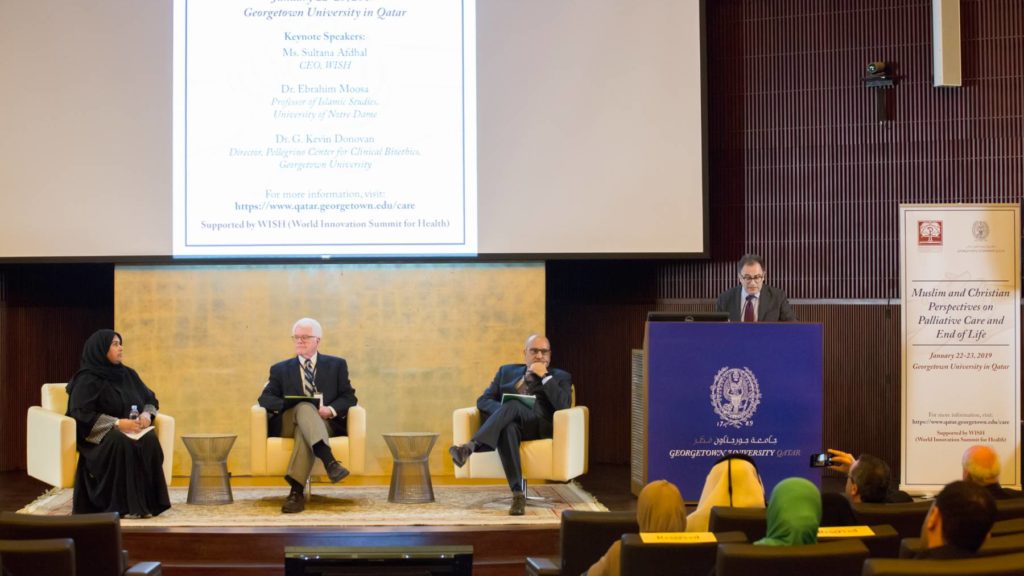Christian and Muslim Perspectives on Palliative Care and End of Life Conference Opens

World renowned experts on ethics, Islam, Christianity, and medicine gathered on January 22-23 at Georgetown University in Qatar (GU-Q) in Education City to discuss the bioethics of caring for those with life threatening illnesses or those who are facing death. The two-day conference, titled “Christian and Muslim Perspectives on Palliative Care and End of Life”, was jointly organized by GU-Q and the Vatican’s Pontifical Academy for Life (PAL), and with the support of the World Innovation Summit for Health (WISH).
The conference opened with remarks by the dean of GU-Q, Ahmad Dallal, Ph.D., and Archbishop Vincenzo Paglia, President of PAL. Keynote addresses were delivered by the CEO of WISH, Sultana Afdhal, Professor of Islamic Studies at Notre Dame University, Ebrahim Moosa, Ph.D, and Director of the Pellegrino Center for Clinical Bioethics at Georgetown University Medical School in Washington, D.C., G. Kevin Donovan, M.D.
In addition to Dr. Donovan, who offered a Christian perspective on the topic on day one, GU-Q professor and expert on Islamic Bioethics Ayman Shabana spoke on the Medical Treatment between Necessity and Futility panel in the morning of the second day of the conference.
The first day’s panel discussions explored palliative care within the clinical context, featuring three heads of prominent medical schools from Malaysia, Oman and the United States.
Panel participant Salam Al-Kindi, who works as a professor and consultant in the department of hematology in Sultan Qaboos University in Oman, said: “Palliative care, in the clinical setting in particular, is a branch of care that has not received adequate attention in this region. What we find is that rules and methods from other regions are being imported and implemented. So through my presentation, I sought to bring a local perspective. What suits one community may not be what suits another, so we have to really reflect on these different issues.” Other panel discussions covered regulating palliative care, and ethics in palliative care.
The second day of the conference began with a morning session on striking a balance between necessity and futility in medical treatment of end-of-life patients, followed by a panel on the interface of religion and medicine for these patients, and concluded with a discussion of a report developed by the Pontifical Academy for Life.
The panel discussions drew on scholars and practitioners of palliative and end of life care and ethics, coming from institutions across the world. The aim of the conference was to initiate a multidisciplinary exchange on the issues surrounding the treatment of patients facing life threatening illness and death, with a particular focus on opportunities and barriers to care in Qatar and the region. The conference was open to the public.
To learn more about the conference and to see the full schedule of events, please visit https://www.qatar.georgetown.edu/care